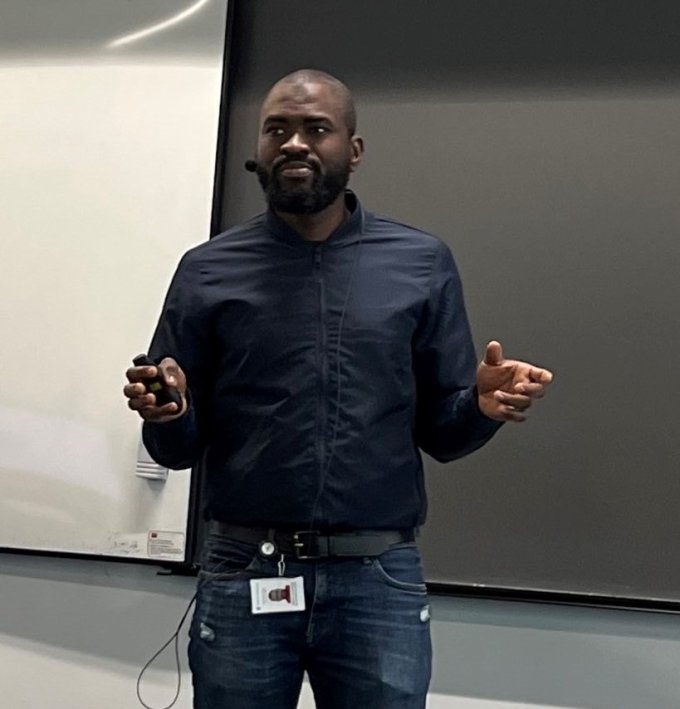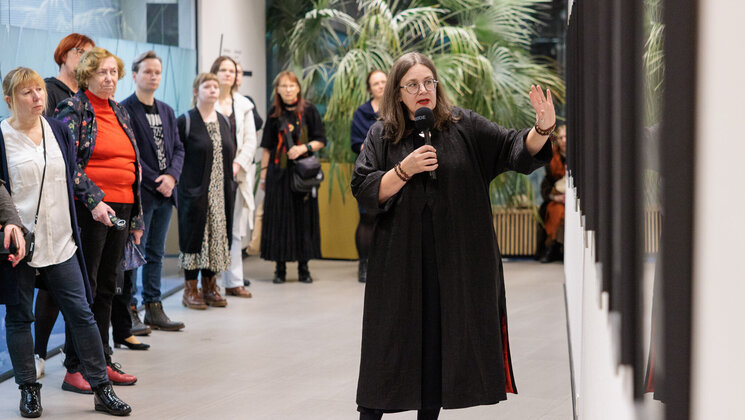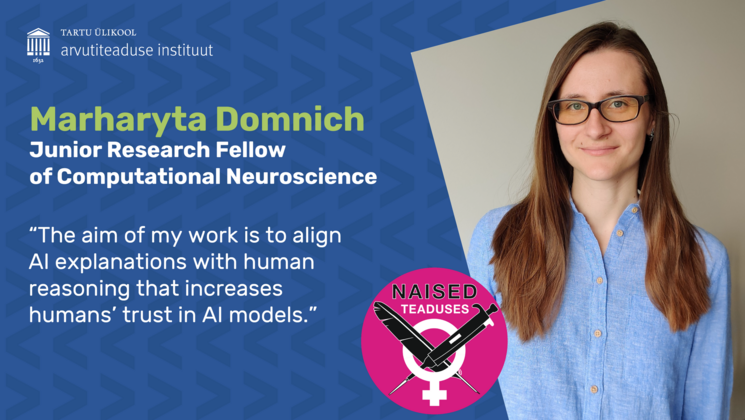-
Faculty of Arts and HumanitiesJakobi 2, r 116-121 51005 Tartu linn, Tartu linn, Tartumaa ESTJakobi 2 51005 Tartu linn, Tartu linn, Tartumaa ESTJakobi 2, IV korrus 51005 Tartu linn, Tartu linn, Tartumaa ESTJakobi 2, III korrus, ruumid 302-337 51005 Tartu linn, Tartu linn, Tartumaa ESTÜlikooli 16 51003 Tartu linn, Tartu linn, Tartumaa ESTLossi 3 51003 Tartu linn, Tartu linn, Tartumaa ESTÜlikooli 18 50090 Tartu linn, Tartu linn, Tartumaa ESTPosti 1 71004 Viljandi linn, Viljandimaa ESTJakobi 2 51005 Tartu linn, Tartu linn, Tartumaa ESTJakobi 2 51005 Tartu linn, Tartu linn, Tartumaa ESTFaculty of Social SciencesLossi 36 51003 Tartu linn, Tartu linn, Tartumaa ESTJakobi 5 51005 Tartu linn, Tartu linn, Tartumaa ESTLossi 36, ruum 301 51003 Tartu linn, Tartu linn, Tartumaa ESTNarva mnt 18 51009 Tartu linn, Tartu linn, Tartumaa ESTNäituse 2 50409 Tartu linn, Tartu linn, Tartumaa ESTNäituse 20 - 324 50409 Tartu linn, Tartu linn, Tartumaa ESTLossi 36 51003 Tartu linn, Tartu linn, Tartumaa ESTRaekoja plats 2 20307 Narva linn, Ida-Virumaa ESTRingi 35 80012 Pärnu linn, Pärnu linn, Pärnumaa ESTLossi 36 51003 Tartu linn, Tartu linn, Tartumaa ESTLossi 36 51003 Tartu linn, Tartu linn, Tartumaa ESTFaculty of MedicineRavila 19 50411 Tartu linn, Tartu linn, Tartumaa ESTBiomeedikum, Ravila 19 50411 Tartu linn, Tartu linn, Tartumaa ESTNooruse 1 50411 Tartu linn, Tartu linn, Tartumaa ESTL. Puusepa 1a 50406 Tartu linn, Tartu linn, Tartumaa ESTL. Puusepa 8 50406 Tartu linn, Tartu linn, Tartumaa ESTRavila 19 50411 Tartu linn, Tartu linn, Tartumaa ESTUjula 4 51008 Tartu linn, Tartu linn, Tartumaa ESTRavila 50411 Tartu linn, Tartu linn, Tartumaa ESTRavila 19 50411 Tartu linn, Tartu linn, Tartumaa ESTFaculty of Science and TechnologyVanemuise 46 - 208 51003 Tartu linn, Tartu linn, Tartumaa ESTNarva mnt 18 51009 Tartu linn, Tartu linn, Tartumaa ESTRiia 23b/2 51010 Tartu linn, Tartu linn, Tartumaa ESTRavila 14a 50411 Tartu linn, Tartu linn, Tartumaa ESTNarva mnt 18 51009 Tartu linn, Tartu linn, Tartumaa ESTRiia 23, 23b - 134 51010 Tartu linn, Tartu linn, Tartumaa ESTObservatooriumi 1 61602 Tõravere alevik, Nõo vald, Tartumaa ESTNooruse 1 50411 Tartu linn, Tartu linn, Tartumaa ESTJ. Liivi tn 2 50409 Tartu linn, Tartu linn, Tartumaa ESTVanemuise 46 51003 Tartu linn, Tartu linn, Tartumaa ESTVanemuise 46 51003 Tartu linn, Tartu linn, Tartumaa ESTArea of Academic SecretaryLossi 3 51003 Tartu linn, Tartu linn, Tartumaa ESTUppsala 6, Lossi 36 51003 Tartu linn, Tartu linn, Tartumaa ESTArea of Head of FinanceÜlikooli 17 51005 Tartu linn, Tartu linn, Tartumaa ESTArea of Director of AdministrationÜlikooli 18A (III korrus) 51005 Tartu linn, Tartu linn, Tartumaa ESTÜlikooli 18, ruumid 102, 104, 209, 210 50090 Tartu linn, Tartu linn, Tartumaa ESTArea of Vice Rector for ResearchW. Struve 1 50091 Tartu linn, Tartu linn, Tartumaa ESTArea of Vice Rector for DevelopmentNarva mnt 18 51009 Tartu linn, Tartu linn, Tartumaa ESTVanemuise 46 51003 Tartu linn, Tartu linn, Tartumaa ESTLossi 25 51003 Tartu linn, Tartu linn, Tartumaa ESTArea of RectorArea of Vice Rector for Academic AffairsUppsala 10 51003 Tartu linn, Tartu linn, Tartumaa ESTÜlikooli 18b 51005 Tartu linn, Tartu linn, Tartumaa EST
Abdul-Rasheed Ottun: explainability of AI is at the centre of my PhD research and SPATIAL agenda

Here is the editorial of Abdul-Rasheed Ottun from the SPATIAL PhD series. Abdul-Rasheed Ottun is a first-year PhD candidate and a Junior Research fellow of Pervasive Computing at the institute of computer science of the University of Tartu, Estonia. His PhD research is in the area of artificial intelligence (AI) and drone technology.
Today, Artificial Intelligence (AI) is integrated into drones to enable the autonomous operations of drones with little or no human intervention, causing increasing uptake in the deployment of autonomous drones for different operations such as delivery operations, search and rescue operations, pollution monitoring etc., which calls for the need to guarantee that their operations can be trustworthy.
Meaning that, to what extent can their operation be safe, resilient in the advent of the unexpected, and comprehensible to users? Since the explainable AI (XIA) methods have recently emerged as a mechanism that can help understand AI models’ behaviour and the factors affecting them, I intend to use XAI to improve accountability and resilience in drone technology in my research.
Explainability of AI is at the centre of my PhD research and SPATIAL agenda. It is the extent to which the behaviour (inner working) of an AI algorithm can be described to humans in any AI application.
I joined the SPATIAL project during the last quarter of 2021. In my opinion, it is a profound and ambitious project, as it seeks to ensure that AI-based solutions -especially in the cybersecurity domain – are resilient, accountable, trustworthy, transparent and explainable.
Given SPATIAL’s ambition and the increasing uptake of AI in society, the project has a high potential to impact different segments of society, such as regulation, business, technology, and education.
I feel highly privileged to be part of SPATIAL. The tasks and responsibilities I undertake and my teams’ expected contributions to SPATIAL are moulding my experience in scientific research and project management. Being the only PhD student member on UT’s SPATIAL team, my responsibilities broadly relate to research, deliverables management, communications, work package tasks (activities) coordination, and other management aspects of SPATIAL.
So far, the journey has not been without its challenges. However, the challenges present various opportunities to acquire and build competencies and collaborate with leading scientists in solution development, capacity development, relationship building, and social and scientific network creation.
I am optimistic about SPATIALS’ objectives and hope that its findings and technological solutions are adopted for industrial usage”.
Researchers from the University of Tartu’s Institute of Computer Science are taking part in the EU Horizon project SPATIAL (Security and Privacy Accountable Technology Innovations, Algorithms and Machine Learning), which aims to develop resilient accountable metrics, privacy-preserving methods, verification tools and system solutions that will serve as critical building blocks for trustworthy AI in ICT systems and cybersecurity.

Read more similar news






